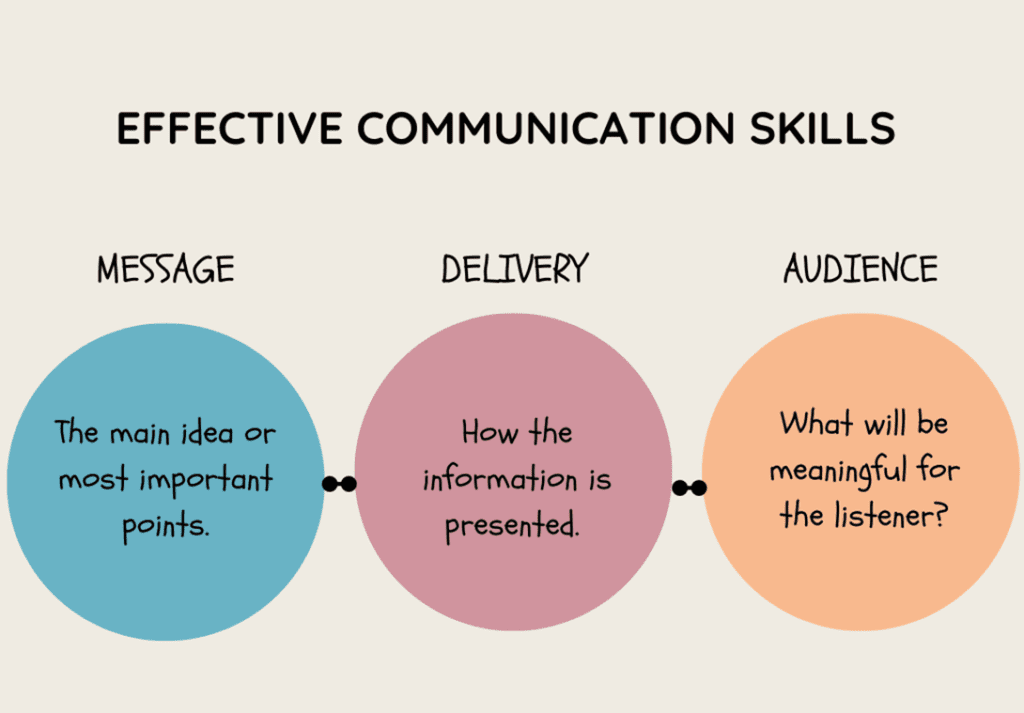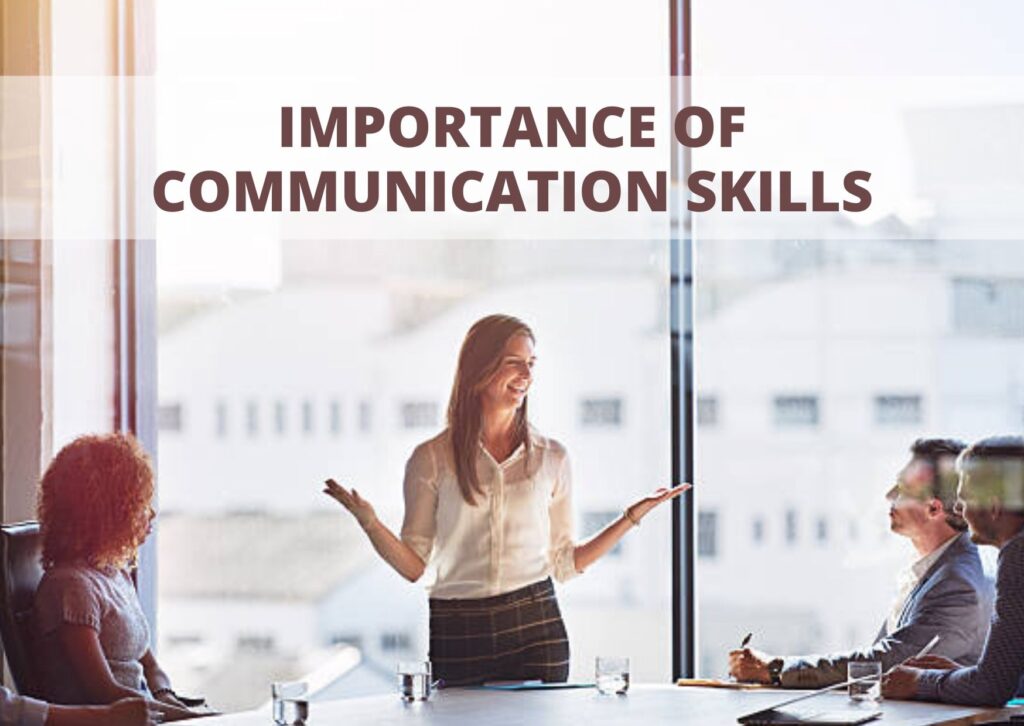Table of Contents
Toggle
Communication skills refer to capacity to deliver information effectively and efficiently. It includes both verbal and nonverbal modes of expression, such as listening, speaking, writing, and body language. Clarity, conciseness, and an acceptable tone for the audience and situation are all necessary for effective communication. It also requires active listening, empathy, and the ability to understand and respond to others’ points of view.
Strong communication skills enable easy interactions, collaboration, and rapport in a variety of settings, including the job, social environments, and personal connections. Developing communication skills requires practice, feedback, and constant modification in order to express messages accurately, avoid misunderstandings, and foster meaningful connections. Effective communicators can articulate their ideas, present them effectively, and engage others constructively.
Communication skills are critical for successful cooperation, connection building, and problem solving. They improve the clear sharing of ideas, reduce misunderstandings, and promote productivity and harmony in a variety of personal and professional settings.

Clear communication promotes collaboration among team members by ensuring that everyone understands their roles and responsibilities. It reduces misunderstandings, promotes togetherness, and increases productivity by creating a harmonious work atmosphere.
Strong communication skills are essential for developing and sustaining positive relationships. Effective communication, whether in personal or professional situations, allows people to express themselves freely, listen actively, and connect with others. This promotes trust, mutual respect, and better connections, resulting in more meaningful interactions and partnerships.
Effective problem identification, analysis, and resolution require good communication skills. It enables people to express their concerns, share ideas, and work together to discover answers. Clear communication reduces confusion, ensures goal alignment, and makes it easier to put successful problem-solving solutions into action.
Improved communication skills promote self-expression, confidence, and forcefulness. They allow people to successfully express their thoughts and feelings, which leads to better personal and professional development.
Communication skills are the capacity to effectively express knowledge using both verbal and nonverbal means. They include listening, speaking, writing, and body language. These abilities are critical because they serve as the foundation for effective relationships in both personal and professional settings. Effective communication promotes collaboration by ensuring that team members understand each other’s viewpoints, resulting in better decision-making and problem-solving.

communication skills are essential for developing and keeping connections. Clear and compassionate communication promotes trust, mutual regard, and connection with others. Furthermore, effective communication is critical for resolving disagreements peacefully and reaching solutions that benefit all parties involved.
Speaking skills are frequently a deciding factor in professional success. Employers respect those who can properly explain their ideas, work well with others, and interact skillfully with clients and consumers. Overall, improving communication skills is essential for navigating social interactions, completing goals, and growing personally and professionally.
To communicate more clearly and successfully, focus on message clarity, actively listen to others, tailor your communication to your audience, and accept comments for clarification. These techniques improve comprehension, involvement, and rapport in both personal and professional settings.

Express your message clearly, avoiding ambiguity or unneeded complexity. Use basic, easy-to-understand language and order your ideas logically. Being straightforward and direct ensures that your audience understands the major aspects of your message without confusion.
Actively listen to others’ perspectives and feedback. Pay attention to both verbal and nonverbal signs, and show empathy by acknowledging their perspectives. Effective communication is a two-way street, and actively listening promotes improved understanding and collaboration.
Utilize to Your Audience: Customise your communication style and content to meet the demands and preferences of your audience. Consider things like their background, expertise level, and communication styles. Adapting to your audience ensures that your message connects with them and improves overall clarity and effectiveness.
Encourage input from your audience and be willing to clarify any issues that are unclear. Actively encourage inquiries and respond to any misunderstandings swiftly. Seeking criticism and clarification displays your dedication to good communication while also building connections and trust with your audience.